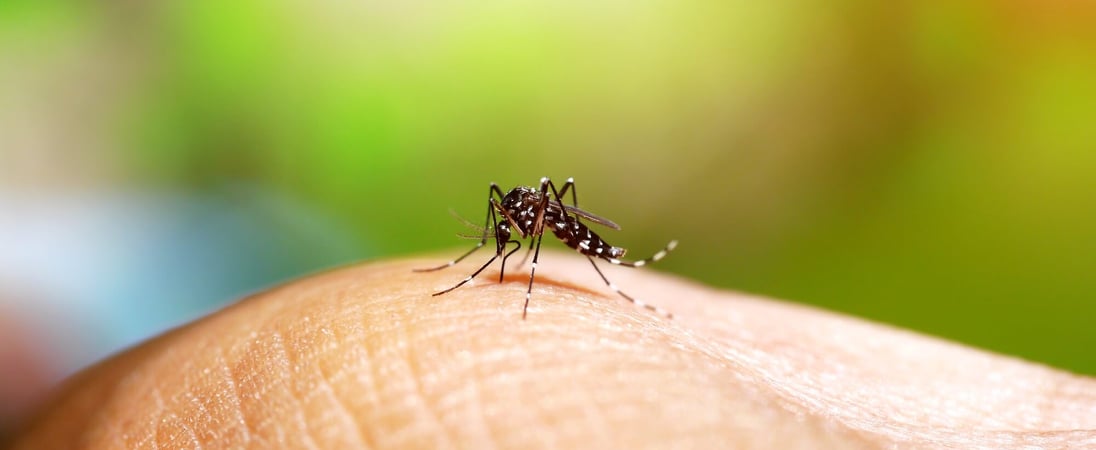
World Malaria Day
Half a million people die of malaria each year. Donate to efforts to stop these deaths by providing mosquito netting and treatment to commonly affected areas.
Malaria is a serious disease that is spread by the bite of an infected mosquito.
It can leave a person feeling feverish and have the chills and, if not promptly treated, the symptoms can be fatal. In fact, more than 200 million people contract malaria each year, and about 1/2 million people each year needlessly die from it.
Even in these modern times, half the world still lives at risk of this fully preventable and treatable disease. While great strides against malaria have been made in the last couple of decades, there has been a bit of a plateau lately. The world still has very far to go toward wiping out this deadly illness.
World Malaria Day was created by concerned citizens as a part of the strategy to do just that!
How to Celebrate World Malaria Day
Joining in with Malaria day is an important cause that can have a life-changing impact. Consider these ways to get involved with helping to eradicate malaria:
Host a World Malaria Day Event
The best way to help fight against this disease and celebrate World Malaria Day would be to get together with friends and family and be part of the change.
Part of investing in the future of defeating Malaria, and regrouping to fight other infections, means that people first need to be educated. Many people all over the world, especially in places that malaria has not affected as directly, are not well-informed about the needs related to this day.
Hosting a World Malaria Day event may include increasing awareness of the need, providing practical ways for people to help and allowing freedom for conversation surrounding solutions.
Toolkits for engaging the conversation around World Malaria Day can be found through the RBM Partnership to End Malaria website.
Raise Money to Support World Malaria Day
Host a bake sale, car wash, online event or some other organized activity that can raise some finances within the local community. This will not only help make people become more aware about the problems of malaria and also raise funds to support the fight against it.
Try involving community groups such as schools, scout troops, youth groups, health organizations or others who might be interested in increasing the resources needed to deal with this difficult disease.
Those who want to donate to help people buy protective nets can find information at the Against Malaria Foundation.
Learn Important Facts About Malaria
Getting to know the truth is vital for support, education in the fight against malaria. Learn these facts about malaria and share them with a friend or family member–not only on World Malaria Day but all throughout the year:
- Malaria is a worldwide problem. In recent years, malaria has been reported in at least 87 countries and territories in the world.
- Millions of lives have been saved from this disease in the past two decades, since an effort has been made to raise awareness and provide support.
- Malaria mostly affects poor people who do not have the resources they need to protect themselves and prevent the disease.
- The best way to prevent malaria is using treated mosquito nets and indoor insecticide sprays.
Other resources and information about malaria and World Malaria Day can be found at the End Malaria website, or through the World Malaria Day website.
Join in an Online World Malaria Day Event
For those who can’t host an event in person, it might be possible to jump on board with World Malaria Day Events that are being held online.
Try joining in to listen to a lecture, or getting resources that can be used to raise awareness through blogs, social media or educational websites.
Stay Safe From Mosquitoes
Even those who don’t live in places where malaria is rampant can benefit from keeping themselves safe from mosquitos during certain seasons.
Mosquitoes can not only carry malaria but many other diseases including West Nile Virus, Chikungunya, and Dengue.
Protection from disease-carrying mosquitoes is mostly about simply keeping them away from the body. This might mean wearing long sleeves and long pants when outside at dusk (or anytime it is dark), and choosing light-colored clothes when possible, as they are not as attractive to mosquitoes as dark colors are.
Use these measures to help prevent mosquitoes from biting:
- Use mosquito repellent that contains DEET (just be careful not to inhale it when spraying), especially when outside and at night. Those who live in at-risk areas should also sleep with a treated mosquito net.
- Use a fan. Mosquitoes don’t prefer to fight against the wind, so any fan that produces a breeze of more than one mile per hour may just blow them away. Also, people who are cool and comfortable may be less likely to be noticeable and interesting to these pests.
- Stay inside at dusk and dawn. Since this is when mosquitoes seem to want to munch the most, just avoid going outside during these peak times, when possible.
History of World Malaria Day
World Malaria Day was started with the intention of reflecting on the progress that the Global Community has made in working to control and eradicate the spread of this challenging disease.
The day also allows for the Global Community which made remarkable progress in fighting Malaria to re-group and help to fight and control other infectious diseases that are prevalent in society today.
World Malaria Day is a gathering of people who partake in activities and commit to carry on investing for the future in order to defeat Malaria. This day is an international observance that was established in 2007 when it was agreed upon by the World Health Assembly, which is part of the World Health Organization (WHO).
Several different groups have worked together to promote this day, including corporations from the private sector, multinational organizations like “Malaria No More” or “Spread the Net” and grassroots organizations, such as the “Mosquitoes Suck Tour”.
One important aspect of World Malaria Day is the effort to engage the political and governmental leaders, communities, and private sectors of African countries (where malaria cases are most prevalent).
Then, encouraging them to take actions that will help the people of these countries to thrive. The theme of this movement is ‘Zero Malaria Starts with Me’.
During 2020, when World Malaria Day had to go online, the importance of the day was still acknowledged through a “virtual applause” that united people all over the globe through social media. The applause was to thank health professionals who work on the front lines against malaria, Co-Vid and so many other diseases.
The rate of malaria cases and deaths is still far too high, so it is still vitally important to share the facts in order for the illness to continue on the road toward being eradicated. With the goal of ending malaria within the next generation, World Malaria Day continues to grow.
World Malaria Day is celebrated by a variety of different people all across the globe and, because of that, this strong group of people can certainly make a change for a better future!
World Malaria Day FAQs
What surprising historical remedies were used to treat malaria?
In ancient Rome, malaria sufferers often wore amulets inscribed with prayers or symbols, believing they could ward off illness.
Some cultures also relied on herbal remedies, such as the bark of the cinchona tree, which contains quinine—a compound still used in malaria treatment today.
How did malaria shape global trade and exploration?
Malaria outbreaks heavily influenced colonial expansion and trade routes. For example, during the Panama Canal construction, malaria decimated workers, delaying progress.
The need to combat the disease pushed advances in public health and mosquito control.
Why is malaria called “marsh fever” in some regions?
Before people understood mosquitoes transmitted malaria, they linked the disease to breathing “bad air” from marshes. The term “malaria” itself comes from Italian words mala aria, meaning “bad air.”
What are some unusual methods of malaria prevention used historically?
Indigenous communities in Africa used smoke from burning certain plants to deter mosquitoes. In Europe, people often built homes on stilts to avoid proximity to breeding grounds.
How does malaria influence literature and popular culture?
Malaria appears in works like Ernest Hemingway’s The Snows of Kilimanjaro, symbolizing struggles against nature. Some films also highlight malaria’s toll on explorers and soldiers.
What is the role of art in raising malaria awareness?
Artists worldwide use their platforms to promote anti-malaria campaigns. For example, murals in African villages often depict mosquito nets to encourage their use.
What animal besides humans is most affected by malaria?
Birds are significantly impacted by malaria. Avian malaria has devastated populations of Hawaiian native bird species, leading to conservation crises.
How are drone technologies being used in malaria control?
In Zanzibar, drones map and spray mosquito-breeding areas with larvicides, significantly reducing mosquito populations in affected zones.
What role does music play in malaria education?
Musicians in Africa create songs to spread awareness about malaria prevention, including lyrics promoting bed nets and early treatment. This combines culture with public health messaging.
Are there any festivals related to malaria awareness?
In some communities, health fairs on World Malaria Day include cultural performances, games, and storytelling to engage people in prevention education.
Also on ...
View all holidaysNational Hug a Plumber Day
Give a special thank-you to the unsung heroes that keep our lives flowing—literally. Without plumbers, we would live in a much more disgusting world.
World Penguin Day
Volunteer to help and educate the world about penguins, the adorable flightless birds of the Southern Hemisphere that face dangers from melting ice caps and more.
National DNA Day
Ever since Watson and Crick’s discovery of the double helix, DNA has aided healthcare, science, even crime. Try a DNA kit, or read about the history of DNA.
National Lingerie Day
Looking for a confidence boost? Treat yourself to some intimate apparel that makes you feel fabulous and sexy! You deserve it.
We think you may also like...
National Immunization Awareness Month
Guarding against preventable diseases, this medical shield protects lives, safeguards communities, and honors the value of health and well-being.








